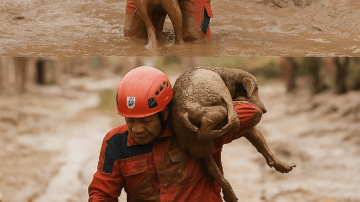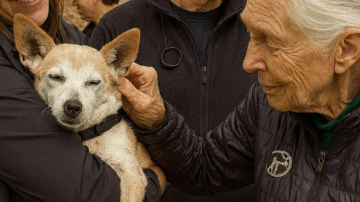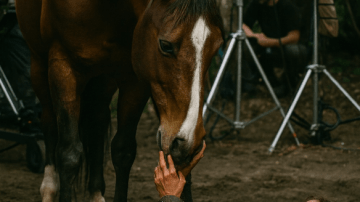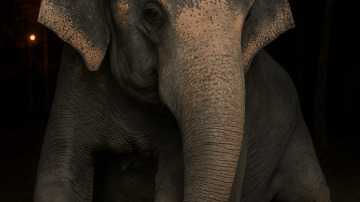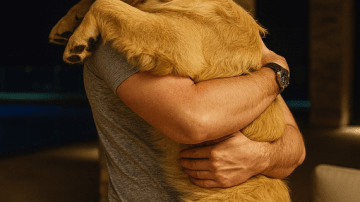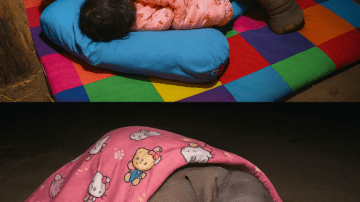As I sit here behind my computer screen, I feel an ache in my chest—a mix of sadness, anger, and disbelief. I’ve just learned about Matilda’s story, and words seem far too small to capture the depth of her suffering.
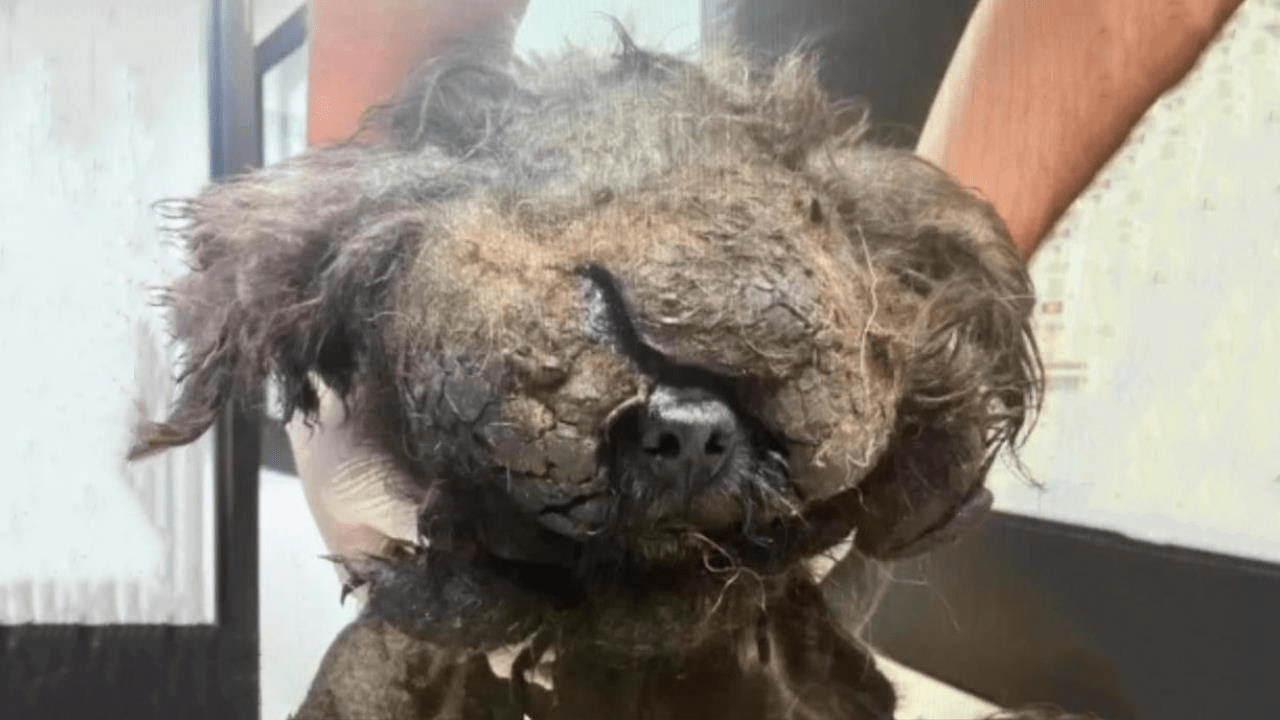
Imagine this: a dog tethered to a crate, trapped in darkness, not for days or weeks—but for three long years. Blind. Alone. Abandoned in a garage where no sunlight touched her face, no gentle hand brushed her fur, no voice whispered her name. Her coat grew into a heavy, matted shell, so thick it became a prison on her frail body.
That was Matilda’s life. Day after day. Year after year.
She waited in silence, forgotten, rotting away in a place that reeked of neglect. No warmth. No kindness. No hope.
And yet, fate has a strange way of intervening.
One day, two women happened to pass by. Something caught their eye—a flicker of movement, a shadow of suffering. When they peered inside that garage and saw her condition, their hearts broke. They didn’t turn away. They didn’t whisper pity and move on. They acted. With urgency, they called Los Angeles Animal Services.
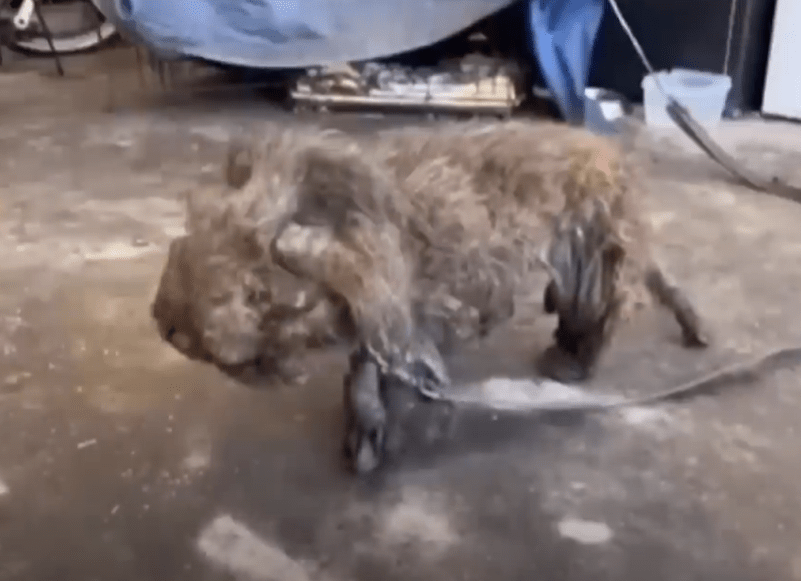
An officer arrived. What they found was almost too much to bear. Matilda, barely alive, tethered to a crate as if her life meant nothing. Her fur was so matted it had fused into her skin, pulling, tearing, hiding wounds that had festered for years. Maggots writhed beneath the mats, burrowing into her sores. Her entire body weighed just 5.5 pounds—but 2.2 pounds of that was matted fur, filth, and rot. Almost half of her body weight wasn’t even hers—it was the prison she carried.
The rescue team at North Central Shelter worked with delicate hands and steady hearts. They shaved away the filth, inch by inch, careful not to cut her fragile skin. They treated her infections. They cleaned the wounds maggots had claimed. Every touch must have been agony for her, and yet, it was also freedom.
Can you imagine what it felt like for Matilda? To suddenly feel air against skin that had been suffocated for years? To finally be free of the weight that had crushed her tiny frame?

But Matilda’s rescue didn’t end with physical healing. A cruelty case was opened in her name. The people who had imprisoned her—who had ignored her cries and left her blind in darkness—were cited. And then, in a final act of cowardice, they refused to claim ownership. They walked away as though she was nothing. No apology. No accountability. Just silence.
It is almost impossible to comprehend such cruelty. How can anyone look at a living creature and see only an object? How can anyone choose to imprison, neglect, and discard without a flicker of guilt? The anger this truth stirs is as sharp as fire.
And yet, Matilda’s story is not only about cruelty—it is about compassion. For as much as her past drips with suffering, her future is written in the hands of those who care. The women who noticed her. The officer who rushed to her side. The shelter team who worked tirelessly to heal her body. They are the proof that even in the darkest corners, humanity still shines.
Matilda’s journey is a reminder that cruelty thrives when we look away. That silence enables suffering. But when people choose to see, to act, to fight for the voiceless, miracles can happen.
Today, Matilda is no longer a nameless prisoner in a garage. She is a survivor. A living, breathing testament to resilience. Though blind, she sees more clearly than those who caged her: she sees love in the hands that hold her now, safety in the voices that call her name, and hope in the warmth of a world that finally noticed her.
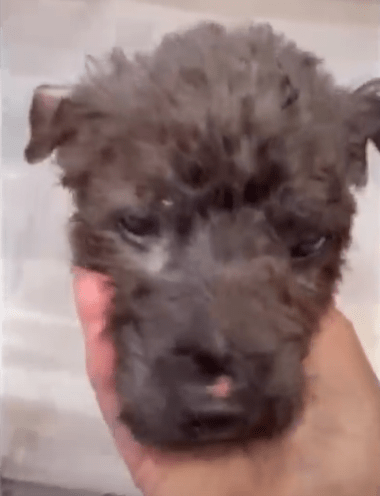
Her story breaks us, yes—but it also challenges us. It challenges us to never turn a blind eye to suffering. It asks us to stand beside the shelters, the rescuers, the organizations who dedicate their lives to giving animals like Matilda a second chance.
Because for every Matilda who is rescued, countless others still wait in silence.
Matilda’s name should echo as both a wound and a call to action. A wound that reminds us of the cruelty animals endure. A call that insists we do more, care more, fight harder.
Her past was darkness. Her present is light. And her future—thanks to those who refused to walk away—is hope.

